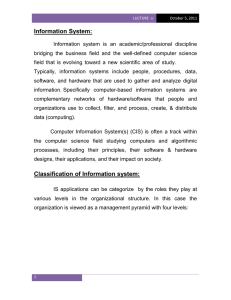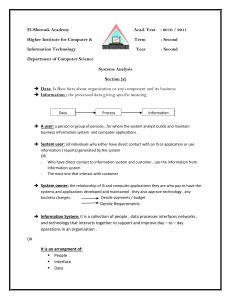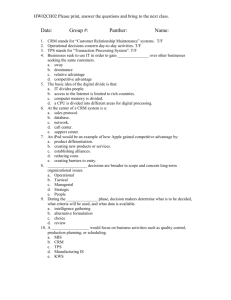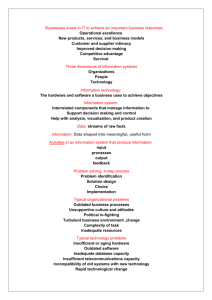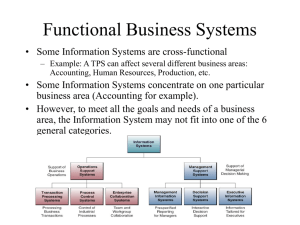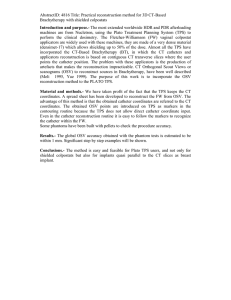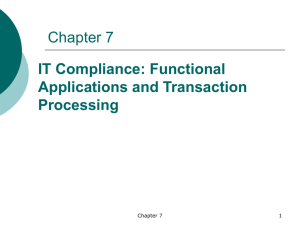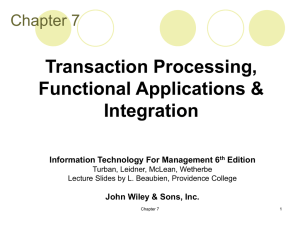TPS - WordPress.com
advertisement
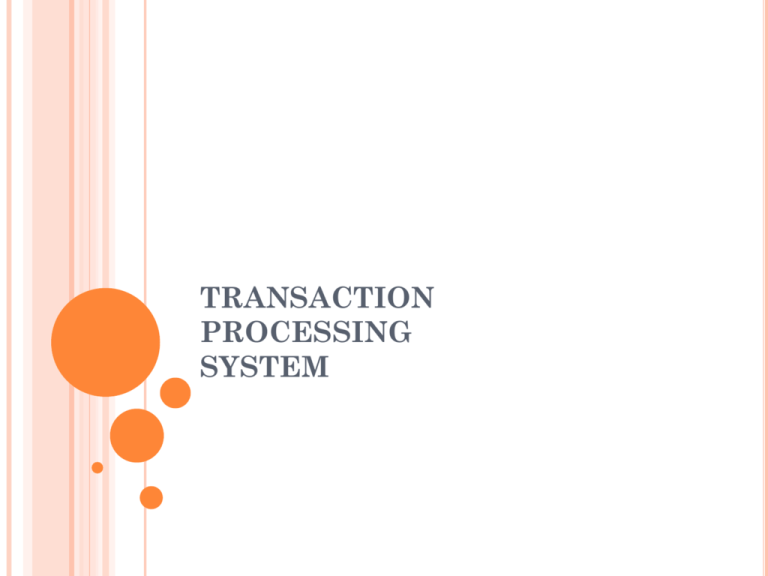
TRANSACTION PROCESSING SYSTEM NTRODUCTION A transaction processing system (TPS) is an information system that records company transactions. A transaction is defined as an exchange between two or more business entities.TPS is cross-functional information systems that process data resulting from the occurrence of business transactions. Transactions are events that occur as a part of doing business, such as sales, purchases, deposits, withdrawals, refunds and payments. Input Functions Processing Functions Output Functions Storage Functions PROCESS OF TPS •Data Entry •Data Capture •Data Validation •Processing and Revalidation •Storage •Output generation •Query Support GENRIC EXAMPLES •Accounts Payable–keeps record of money owned by the organisation. •Accounts Receivable-keeps record of money owed to the organisation. •Personnel-keeps record of all staff employed •Customers-keeps record of all customers of an organisation. •Payroll-calculates and records staff salaries and wages. •Inventory-tracks the movement of items in and out of the store. •General Ledger-keeps central record of all financial transactions drawn from accounts, payrolls, inventory. COMPARISON OF TPS WITH MIS •MIS stands for Management Information System and helps in controlling, monitoring and decision making at the middle level management •Transaction Processing System and collects, stores, modifies and retrieves all information about transactions in the organisation. •TPS becomes a major source of data for MIS. The data that is generated through TPS is on the level of operations such as payroll or order processing. TPS tracks daily routine transactions that are essential to conduct business. MIS makes heavy use of data from TPS though it also utilizes data from other sources. THANK YOU
